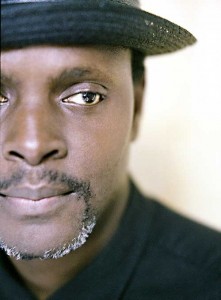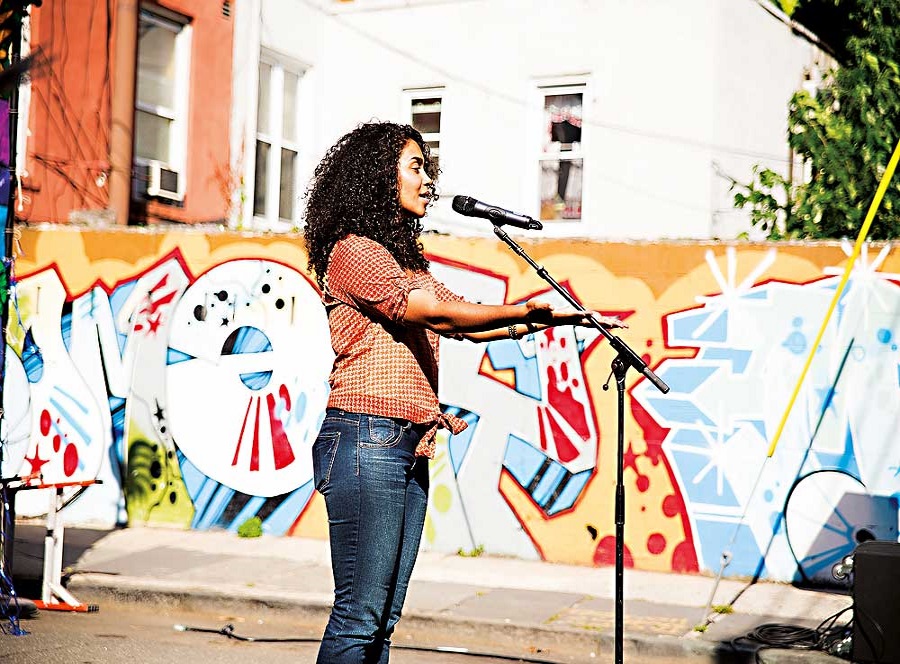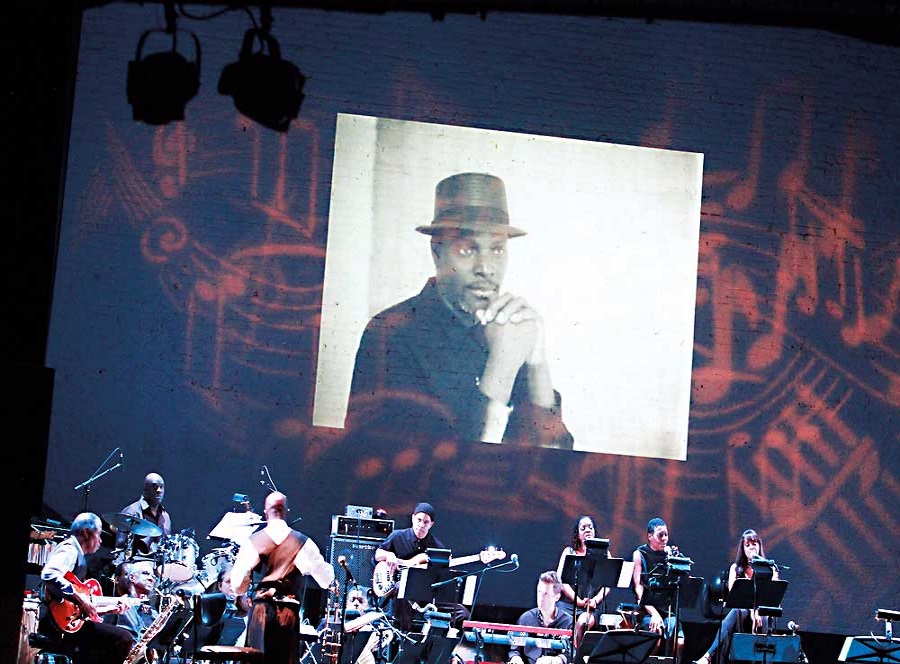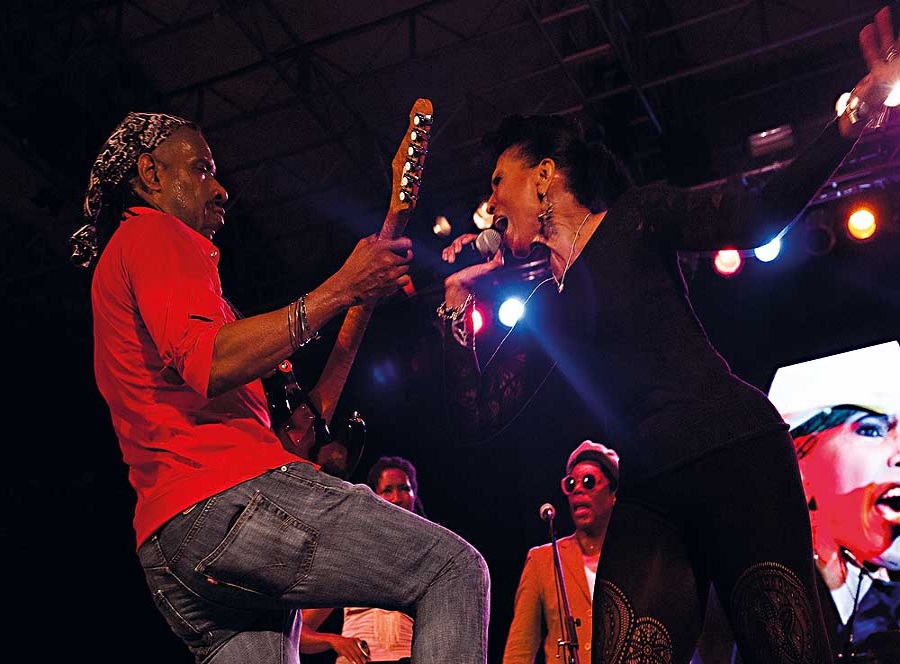There is a moment that surprises me…It is summer 2012, and I have been meeting with artists to contemplate the re-envisioning of The Circle Unbroken Is a Hard Bop, Sekou Sundiata and Craig Harris’s signature theatre piece that premiered as part of Aaron Davis Hall’s New Faces/New Voices/New Visions Series in New York City in 1992. The show later had a run at the Nuyorican Poets Café and toured to 10 cities. This is one piece that we would like to have explored by an innovative, vibrant company, another generation, as part of the retrospective—Blink Your Eyes: Sekou Sundiata Revisited—being produced by Sekou’s longtime producing partner, MAPP International Productions (which has brought me on as a researcher and participating artist).

Already a year into the planning, we find ourselves wrestling again and again with questions of legacy versus innovation. Can the original text withstand the new rhythms of a company with its own signature style? Can an ensemble perform Sekou’s solo piece blessing the boats? Is there time for a new interpretation of Sekou’s final and most expansive musical theatre production, the 51st (dream) state, or will a simple remounting suffice?
These events cannot be mere re-stagings, we decide. They must be new engagements, thoughtful contemplations on how the work can live today, relive, a re-visitation, a release, a…
The surprise catches up with me.
I suddenly realize, as I sit here on this midsummer day contemplating the reinterpretation of Sekou’s work, that it has been five years, exactly five years since his passing. I am breathless, tearful, overwhelmed….
I write on Facebook:
As I come to the end of a three-year creative/archival project with the Bebe Miller Company, and prepare to submerge myself in the upcoming retrospective of work by my brilliant friend, Sekou (beginning April 2013), I reach out to the source, his voice, for inspiration, guidance and blessings. Stunning to realize that it has been five years, almost to the date (July 18, 2007), since we last… I stumbled upon this realization today, searching for, no, needing a…connection. Searching through Memory is a tricky thing, and of late I have had the honor and privilege to travel through the legacy of Carmen De Lavallade, a 15-year History with Bebe Miller, and was it nearly 20 years ago when I was first enthralled by the sounds of Sekou’s The Mystery of Love? Blessings, blessings, blessings…
I post a clip of his voice (“Shout Out”) from the CD “The Blue Oneness of Dreams,” and I remember his phrase from The Mystery of Love: “Anything can happen on the bandstand….”
As the retrospective events began to roll out in April 2013, starting with a kick-off convergence at the New School, Sekou’s academic home for many years, the multi-borough, multi-venue spectacle came into view. Ann Rosenthal and her MAPP International team, with the approval and guidance of Maurine Knighton, Sekou’s longtime partner and executor of his estate, drove the curatorial and producorial eye of each event, paying great heed to the importance of the old and the new, the witnesses and the inheritors. Running through Oct. 12, with more than 20 presenting partners and 150 artists, scholars and community organizers, the list of events has been nothing short of dazzling:
- Craig Harris reinterpreted Tongues of Fire Choir at the Apollo Theater, with Amiri Baraka, Abiodun, Rakim and Liza Jessie Peterson inhabiting Sekou’s words, alongside an illustrious roster of musicians including Regina Carter, Bobbi Humphrey and Vernon Reid.
- Central Park SummerStage was also on fire, presenting a riotous cover concert of longstoryshort with the powerhouse forces of Toshi Reagon, Sandra St. Victor and Nona Hendryx riffing on Sekou originals and their own compatriot visions.
- LaTasha N. Nevada Diggs curated Free: Amplified, an exploration of Sekou’s only book of published poems, FREE! (1977), with multiple generations of poets and musicians, at Lincoln Center’s David Rubenstein Atrium.
- La Casita, an outdoor performance/block party held since 2001, dedicated its two-day poetry and music marathon at Lincoln Center Out of Doors and Teatro Pregones to the life of Sekou, one of its original performers.
- A historic convergence of past band members and poetic comrades paid tribute at Marcus Garvey Park to Sekou’s life in Harlem as part of his 65th birthday celebration, and an event curated by composer Karma Mayet Johnson and tracing Sundiata’s conversation with the blues was presented by the Cave Canem Foundation at the Schomburg Center for Research in Black Culture.
- The fall has brought reimaginings of two of Sekou’s theatrical works: The Circle Unbroken Is a Hard Bop played in September, directed by Hip Hop Theater Festival co-founder Kamilah Forbes and produced by 651 Arts; and still to come on Oct. 10, the 51st (dream) state, directed by Arthur Yorinks, will live as a radio concert at WNYC’s Jerome L. Greene Performance Space.
- Many other explorations of poetry, civic action and community engagement have been organized with such partners as Brotherhood/Sister Sol, Eugene Lang College/New School, Poets House, Lincoln Center Institute for Arts in Education, Columbia University and—wrapping things up Oct. 11–12—Days of Art & Ideas at Harlem Stage.

For me, the most entrenched effort of the retrospective has been as dramaturg for blessing the boats: the remix, given a reading in April and fully staged in June by its original director Rhodessa Jones, featuring the extraordinary talents of Mike Ladd, Will Power, and Carl Hancock Rux. From the very first rehearsal it was clear that these were the right performers/poets for this interpretation of Sekou’s autobiographical story of illness and recovery. Their histories, talents and firsthand memories of Sekou embellished the text, and there was a fullness to their understanding and interpretation. We were moved from the read-through—also impressed by the brilliance of the text that in many ways we can appreciate even more now that we are no longer seduced by the presence of Sekou, his lived survival resonance. We were now left with language and memory, the pure storytelling.
We quickly understood the importance of the retrospective: New audiences and old spectators alike would discover and rediscover this quintessential talent in its purest literary form—sans the creator, the things that remain. By the time we reached the final performance of blessing the boats: the remix, co-commissioned and presented as part of the River to River Festival by the Lower Manhattan Cultural Council and Borough of Manhattan Community College, the community had come to bear witness to the resonance of the words as interpreted by our power trio. The text lives on.

Having interviewed more than 20 people for a timeline in the retrospective catalog, I have a direct understanding of why such a collection of artists and presenters has been necessary to capture the vitality and brilliance of Sekou’s vision. He was a Renaissance man of performance. Longing to be James Brown, he fronted many bands as oral prophet, starting with Are & Be, through Sekou and the Kou, to dadahdoodahda.
What surprised me most is what I discovered through this interview and excavating process—the origins of his theatricality. Although a band, Are & Be could have been viewed as an urban post-mod-performance art troupe, melding movement, text and music. Backing him up were not singers but rather “oralizers,” spoken-word sirens, syncopated to the rhythms of Sekou’s basso voce. The legendary actress Brenda Denmark, an original oralizer, told me, “We were unique and ahead of our time, or of the time. A forerunner of the scene between the Last Poets and the whole Rap thing, we were in-between.”
Acclaimed choreographer Sandra Burton, one of the founders of Are & Be, recalled for me a piece about Three Mile Island the band performed in discos. “We had gas masks. It had a beat. When we performed at Leviticus, people sat their butts down for our set, they listened to the work and then they got up and boogied.”
Sekou has always lived on the fringe of the “world of theatre,” in it but maybe not of it, escaping definition, critics baffled over where to place him. One description of the 2001 New York premiere of his dramatic opera about slavery in Mauritania, Udu (which I directed), referred to the work as a “diasporitorio.” Often better understood in the music world than the theatre world, Sekou’s work could defy description or inspire hyperbole, as in this passage from the New York Times review of The Circle Unbroken Is a Hard Bop: “And in one tornadic scene, the poet lets the audience hear all at once the range of his vocabulary and voice: Mr. Sundiata becomes a young, crazed homeless man on the street, and in eight minutes pours out a torrent of grief, humor and shrewd insight that leaves one simply astonished.”
Investigating his archives I was surprised to discover just how much he wanted to write plays, actual scripts. There is a trail of thoughts, half-thoughts, beginnings, ideas for plays, reflections, longings, dreams…. His City College master’s thesis was a choreopoem for performance, mentored by his professor, the great June Jordan. And they did perform it on the bandstand. Yet none of this work is as vibrant as the poetry that he refused to publish. It was a live medium for him, and his “publishing” was through recording. As Bob Holman, founder of Bowery Poetry Café, has said: “In a world that is notoriously unrewarding, the world of poetry, Sekou was a singular figure, someone who left no written legacy. To see his oral history become history is to see his way of being find a continuation in the literary world.”

One of the accomplishments of the retrospective catalog is that it does collect a dozen of the poems in context with his life, along with great musings by Greg Tate, Jane Lazaare, Amiri Baraka and Kimiko Hahn. It is a publication that might lead to more. As long as the music lives, the poems on the page are open to interpretation and reinterpretation. But nothing corrects a misreading more quickly than a recorded riff or inflection from one of Sekou’s CDs.
He is a complicated theatre artist to categorize, and therefore I won’t. It is impossible to “retrospect” a life—we are only capturing glimpses, glimmers of an artist, but through the retrospective those who knew the man and his work, and many newcomers to his legacy, have gained a tremendous appreciation of how this singular artist lived in multiple performance worlds, profoundly, on his own terms, all things arising from the bandstand.
A quote I discovered in his journals, regarding his first recorded CD, says it all:
This is poetry-as-living-word. That’s the tradition I come out of…the spoken word as celebration of life, as expression of consciousness through the power and glory of language. Poetry not as monologue, but as a dialogue: a chant, a call, a response, a riff, a refrain and whatnot. Always remember that… It’s about these curses and these blessings.
Although it has looked back, Blink Your Eyes: Sekou Sundiata Revisited has simultaneously created pathways for moving forward. Yes, the work will live on, the lineage is strong, and the memory grows even stronger, more to come….
NYC-based director, playwright and dramaturg Talvin Wilks had a long collaborative history with Sundiata, directing his The Mystery of Love, The Return of Elijah and Udu, as well as the concerts Tongues of Fire Choir at Aaron Davis Hall and Lost in Translation at the American Center in Paris.


